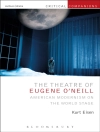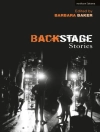This book investigates how contemporary artistic practices engage with the body and its intersection with political, technological, and ethical issues. Departing from the relationship between corporeality and performing arts (such as theater, dance, and performance), it turns to a pluriversal understanding of embodiment that resides in the extra violent conditions of contemporary global necro-capitalism in order to conduct a thorough analysis that goes beyond arts and culture. It brings together theoretical academic texts by established and emerging scholars alike, exposing perspectives form different fields (philosophy, cultural studies, performance studies, theater studies, and dance studies) as well as from different geopolitical contexts. Through a series of thematic clusters, the study explores the reactivation of the body as a site of a new meaning-making politics.
สารบัญ
1. Marina Gržinić, Aneta Stojnić; Reclaiming the Body: Fem Positions Repoliticized.- 2. Frank B. Wilderson, III; “We’re Trying to Destroy the World”: Anti-Blackness & Police Violence After Ferguson.- 3. Ramsay Burt; Revolutionary Performances: Reading Adham Hafez’s blog.- 4. Adham Hafez; amchoreo blog 2011: Just to remember, some weeks ago.- 5. Johannes Birringer; Standing Still Dancing in a Circle: Performance Dissent and Failed Gestures in Public Protest.- 6. Jasmina Tumbas; Countering Persecution, Misconceptions, and Nationalism: Roma Identity and Contemporary Activist Art.- 7. Ana Vujanović; Performing Ideology: Communitas and Immunitas .- 8. Goran Petrović Lotina; Reconstructing the Bodies: Between the Politics of Order and the Politics of Disorder.- 9. Kristof van Baarle; The Mascot as Neoliberal Body: Kris Verdonck’s UNTITLED.- 10. Brahma Prakash; “Dangerous” Choreopoliticsof Labouring Bodies: Biopolitics and Choreopolitics in Conflict in the act of Jana Natya Mandali in India.- 11. Bojana Matejić; The Appearance of Truth in Art: Body, Subjectivation and the Generic Life.- 12. Stephen Wilmer; Invisible Mothers: Biopolitical Control in Ireland.- 13. Lewis R. Gordon; Disciplining as a Human Science.- 14. Joachim Ben Yakoub; Performing Self-sacrifice, Despite Everything or Despite Oneself? Embodying a Necro-political Space of Appearance in the Tunisian Revolution.- 15. Stacey Prickett; Post Millennial Choreographic Challenges: Survival, Celebration and Critique.- 16. Konstantina Georgelou; Form-of-Life as Radical Togetherness: “New Materialist” Expansions of Choreography.- 17. Katherine Behar; Modeling Big Data.- 18. Bojan Đorđev; Not Red, but Blood!.- 19. Adela Jušić and Lana Čmajčanin; I Will Never Talk About War Again.- 20. Jelena Jureša; Notes on PMS.- 21. Tanja Ury; Artistic Freedom.
เกี่ยวกับผู้แต่ง
Marina Gržinić is a philosopher and artist who lives in Ljubljana and works in Ljubljana and Vienna. She is Professor at the Academy of Fine Arts in Vienna, Austria, and a researcher at the Institute of Philosophy at the SRC SASA (Research Center of the Slovenian Academy of Science and Arts) in Ljubljana, Slovenia. She has published ten books (monographs and translations) as well as numerous influential articles in renowned academic journals.
Aneta Stojnić is a theoretician, artist, curator, and Professor of Performance and Media Theory in the Faculty of Media and Communications at Singidunum University in Belgrade, Serbia. She is currently a candidate at IPTAR Institute for Psychoanalytic Training and Research in New York, USA. She has published three books and numerous articles in renowned peer reviewed publications and has authored various artistic and curatorial projects across Europe.












